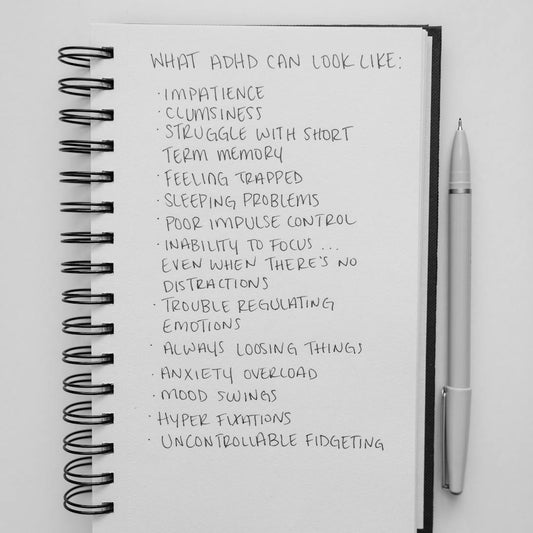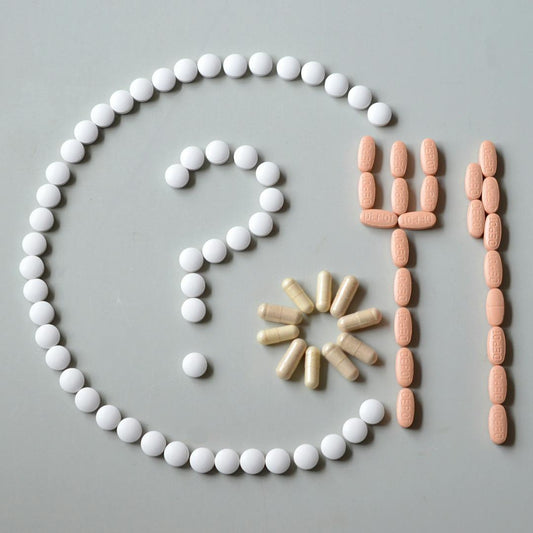
How Often Should I Take Vitamin D3 5000 IU?
How Often Should I Take Vitamin D3 5000 IU?
From boosting bone health to bolstering immune function, supporting a healthy heart, reducing inflammation, and more - the benefits of taking a vitamin D3 5000 IU are well documented.
This vital nutrient plays a role in thousands of bodily functions. But since it’s so hard to get it through diet and sunlight exposure alone, supplementation is necessary.
Maybe you’ve already found a supplement, or perhaps you’re still on the search - if so, our vitamin D3 5000 IU is the #1 choice. How often should I take vitamin D3 5000 IU to maximize its benefits and prevent deficiency, though? Can I take 5000 IU of vitamin D3 every day?
It all depends on factors like your baseline vitamin D levels, sun exposure, dietary intake, age, and health status. However, we make it simple here at Smarter Vitamins. Just take one of our liquid softgels daily with a meal. Learn more about dosage, timing, and more to make the most of this supplement below!
Why Take a Vitamin D3 5000 IU Supplement?
Before we get into how often to take vitamin D3 5000 IU, let’s start with the basics. What are the vitamin d3 5000 iu benefits you need to know about, and why is supplementation the optimal approach to addressing deficiencies?
Health Benefits of Vitamin D3
Vitamin D3, also known as cholecalciferol, has been shown to assist in over 2,000 bodily functions. Whether you’re looking to address an issue or just live a healthier, happier life, you need it in your arsenal - here’s why:
- Bone Health: Vitamin D3 aids in calcium absorption in the gut, in turn supporting healthy bones and teeth. Adequate vitamin D3 levels prevent bone disorders such as osteoporosis and rickets.
- Immune Function: It enhances the pathogen-fighting effects of monocytes and macrophages, white blood cells that makeup part of your immune defense. Vitamin D3 also decreases inflammation, helping the body fend off infections and reducing the risk of chronic diseases.
- Cardiovascular Health: Vitamin D3 enhances cardiovascular health by regulating blood pressure and improving heart function. It can reduce the risk of heart disease and hypertension.
- Mood and Mental Health: This vitamin also influences the production of neurotransmitters such as serotonin, which helps regulate mood. Supplementation has been linked to a lower risk of depression and improved mental well-being.
- Muscle Function: Maintaining adequate levels of Vitamin D3 can enhance physical performance and reduce the risk of falls in older adults.
The Problems With Vitamin D3 Deficiency
It’s clear that vitamin D3 is an important piece of the dietary puzzle. So why can’t you just eat the right foods and get outside in the sun more?
While the body can produce Vitamin D3 through sun exposure, many people do not get enough sunlight due to factors like indoor lifestyles, geographic location, and the use of sunscreen.
Few foods naturally contain Vitamin D3, and even those that do (like fatty fish, liver, and egg yolks) often do not provide sufficient amounts. Fortified foods can help, but they may still fall short of the necessary levels.
This is why, unfortunately, the vast majority of our population is vitamin D3 deficient. This can lead to a host of problems, ranging from weak bones and osteoporosis to increased risk of infection, mood disorders, muscle weakness, and a whole lot more.
Supplementation provides a consistent and reliable source of Vitamin D3, ensuring that you maintain optimal levels regardless of seasonal changes or dietary variations. But, it also raises questions in regard to safety and efficacy. So, how often should I take vitamin D3 5000 IU?
How Often Should I Take Vitamin D3 5000 IU?
There’s not a one-size-fits-all answer for how often to take vitamin D3 5000 IU, so let’s unpack some of the factors at play and explain why daily supplementation is the best approach.
Factors Influencing Your Vitamin D3 Needs
The frequency with which you should take Vitamin D3 5000 IU depends on several factors that influence your body's vitamin D requirements. These include:
- Baseline Vitamin D Levels: Those with significantly low baseline levels may require more frequent or higher doses initially to quickly raise their vitamin D levels. You should get your vitamin D levels tested before starting supplementation to know your specific needs.
- Sun Exposure: UVB rays trigger vitamin D synthesis in the skin. However, factors such as geographic location, season, time spent outdoors, and use of sunscreen can affect the amount of vitamin D your body produces. If you live in higher latitudes with less sun exposure or spend most of your time indoors, you may need to take vitamin D3 supplements more regularly.
- Dietary Intake: Vitamin D can be obtained from certain foods, although dietary sources alone are often insufficient to meet the daily recommended levels. Fatty fish, liver, egg yolks, and fortified foods provide some vitamin D.
- Age and Health Status: As you age, your skin's ability to produce vitamin D decreases, making supplementation more important. Additionally, certain health conditions, such as malabsorption syndromes (Crohn's disease or celiac disease), obesity, and kidney or liver diseases, can impair your body's ability to process vitamin D.
So, Can I Take 5,000 IU of Vitamin D3 Every Day?
So, how often should I take vitamin D3 5000 IU - is daily supplementation really the way to go? We think so, and it’s what we suggest for our specific formulation.
This dosage is within the upper intake level recommended by many health organizations and has been shown to effectively raise and maintain adequate vitamin D levels in the blood.
However, you should always take into consideration your own unique circumstances. If you have any hesitations, getting in touch with your healthcare provider is an excellent first step. Either way, you should watch out for signs you’re taking too much or not enough.
Watching Out for Signs of Deficiency or Toxicity
Your body will tell you if you’re not taking enough vitamin D3 or if you’re taking too much of it. Symptoms of vitamin D deficiency include fatigue, bone pain, muscle weakness, mood changes (such as depression), and frequent infections.
If you experience these symptoms, it may indicate that your vitamin D levels are low and require adjustment in your supplementation. So, how soon will I feel better after taking vitamin d3? If you don’t notice improvements within 3-6 weeks, you may not be taking enough.
Conversely, vitamin D3 toxicity can manifest itself through symptoms like nausea, vomiting, weakness, frequent urination, and elevated calcium levels (hypercalcemia), which can lead to more serious health issues such as kidney damage.
Toxicity is far more rare than deficiency, so you needn’t stress about it too much. Still, you may consider getting regular blood tests to monitor your vitamin D levels and ensure you’re hitting the sweet spot for dosage and frequency.
Additional Advice on Supplementing Vitamin D3 5000 IU
Beyond understanding how often to take vitamin D3 5000 IU, we want to empower you with some more advice on making the most of this supplement.
Choosing the Right Supplement
Not all Vitamin D3 supplements are created equal, and selecting a high-quality product is an essential first step to reaping all the benefits this nutrient has to offer. Here’s what you need to look for:
- Quality and Purity: Look for supplements that are free from additives, fillers, and artificial ingredients. The source of the vitamin D3 is also important. It should be derived from high-quality sources, such as lanolin ( sheep's wool) or lichen (for a vegan option).
- Bioavailability: Choose supplements that are designed with maximum uptake in mind - otherwise, your body may not actually be able to use the vitamin D3 you’re giving it. This means the vitamin D3 should be combined with healthy fats, such as food-grade oil.
- Certifications: Any supplement you buy should be third-party tested for purity and potency so you can place your order with peace of mind. Certifications from organizations like NSF International or USP can provide additional assurance of quality.
- Reputable Brand: Make sure the brand you’re purchasing from has a proven track record of delivering safe, effective supplements. Do your due diligence and read through reviews to get a better sense of what you can expect.
There are so many supplements on the market that finding an option that aligns with all these criteria can be overwhelming.
But, you needn’t look any further than Smarter Vitamins. Our vitamin D3 5000 IU is paired with avocado oil to enhance absorption, ensuring you get the most benefit from each dose.
Sourced from premium, non-GMO ingredients and manufactured in an FDA-registered facility, our supplements are third-party tested for purity and potency, offering you peace of mind and optimal health benefits.
Our brand is backed by more than 800,000 happy customers and counting, and this specific product has nearly 5,000 positive reviews you can assess before placing your order if you still have your doubts. But with a satisfaction guarantee, you can order yours risk-free today!
Timing Your Dosage and Staying Consistent
Since Vitamin D3 is fat-soluble, taking it with a meal that contains healthy fats can improve absorption. This can include avocados, nuts, seeds, or fatty fish. Like we just said, our approach to pairing vitamin D3 with avocado oil already does wonders for maximizing uptake.
It doesn’t really matter whether you take your supplement in the morning, afternoon, or evening. All that matters is you’re being consistent in how often you take vitamin D3 5000 IU. Taking your dose at the same time each day can help you adhere to a schedule and prevent missed doses.
Combining with Other Nutrients
Vitamin D3 is an amazing nutrient on its own. But, it also works synergistically with other nutrients to enhance its benefits and ensure better health outcomes:
- Magnesium: Essential for converting vitamin D into its active form in the body. Including leafy greens, nuts, and seeds in your diet, or taking a magnesium supplement, can enhance the effectiveness of Vitamin D3.
- Vitamin K2: Helps direct calcium to the bones where it is needed, preventing calcium deposits in the arteries and other soft tissues. This supports bone health and cardiovascular health. Foods like fermented vegetables, cheese, and egg yolks are good sources, or you can take a Vitamin K2 supplement.
- Calcium: While Vitamin D3 increases calcium absorption, ensuring adequate calcium intake from your diet or supplements is still important. Dairy products, leafy greens, and fortified foods are excellent sources of calcium.
Armed with these insights you can expect to feel better in no time! The only thing left to do at this point if you haven’t already is place your order for the best vitamin D3 5000 IU supplement today at Smarter Vitamins and start taking it on a daily basis.
Parting Thoughts on How Often to Take Vitamin D3 5000 IU
So, how often should I take vitamin D3 5000 IU? While individual needs vary based on factors like baseline vitamin D levels, sun exposure, diet, and age, our advice is to take this supplement once a day to build up your reserves and overcome deficiency fast.
This will lead to an array of health benefits, from supporting bone health and immune function to improving mood and cardiovascular health. Just be sure to watch out for the signs you’re on the right track and make adjustments as needed for deficiency or toxicity.
Ready to take the first step towards a healthier, happier you? It all starts at Smarter Vitamins, where you’ll gain access to proven supplements backed by satisfaction guarantees. Invest in yourself today and order your vitamin D3 5000 IU!
Get exclusive access to sales, discounts, new product launches, awesome content & more.
Once a month or so.

































